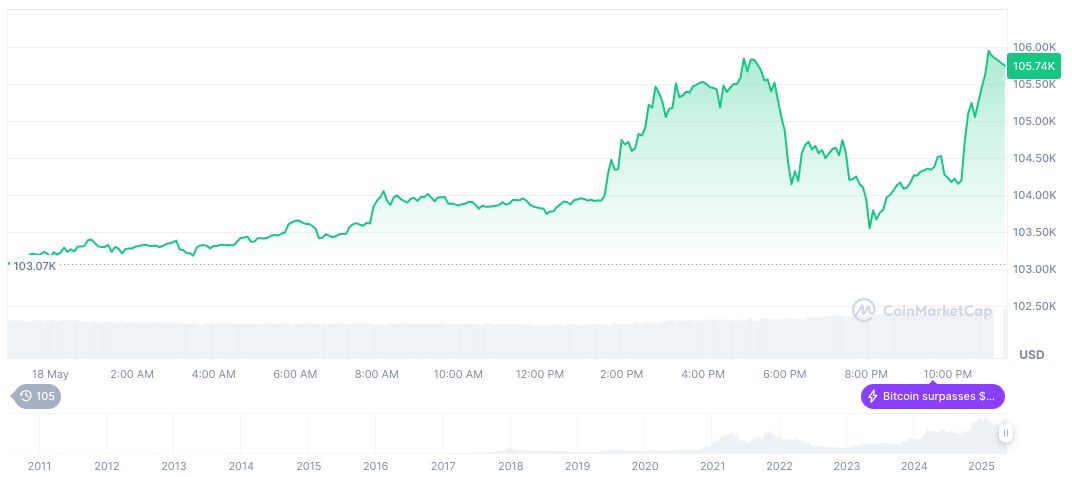- Boston Fed President expects rate cuts amid inflation concerns.
- Potential action if trade improves.
- Tariff impacts complicate decision-making process.
The Boston Federal Reserve’s Susan Collins anticipates rate cuts by the year’s end, conditional on trade progression. Her comments arrive amidst rising concerns over tariff-induced inflation potentially affecting monetary policy decisions.
Collins’ remarks hold significance as they reflect the Federal Reserve’s possible trajectory in response to evolving trade and inflation dynamics, impacting both domestic and international markets.
Fed Rates and Trade Agreements: What Lies Ahead?
Susan Collins, President of the Boston Federal Reserve, suggested a likely interest rate cut by year-end. This stance aligns with past communications, reassuring markets of the Fed’s responsive approach to economic data and trade negotiations.
Should trade agreements advance without disruption, the Fed may consider earlier interventions. The implications are significant for markets anticipating monetary easing to balance inflationary pressures.
Market analysts hold mixed reactions to Collins’ statements. While some interpret this as a commitment to stability, others caution that tariff-induced inflation remains a considerable hurdle, echoed in perspectives from Fed officials like Atlanta Fed’s Raphael Bostic, who foresees limited rate changes this year.
Understanding Tariff Impacts and Inflation Risks
Did you know? Despite anticipated rate cuts, tariff impacts historically correlate with inflation spikes, prompting caution among Federal Reserve policymakers on immediate monetary policy adjustments.
Bitcoin (BTC) is valued at $105,608.04 with a market capital of $2.10 trillion, as reported by CoinMarketCap. With a 24-hour trading volume of $64.83 billion, its price witnessed a 0.14% rise in 24 hours and 2.60% over a week, illustrating significant market activities.
According to Coincu, the Fed’s approach to tariffs and interest rates may affect regulatory landscapes, warranting attention to historical trends that emphasize market responsiveness to inflation and fiscal shifts. Such changes could guide policy approach balancing economic growth and inflation control.
Source: https://coincu.com/338551-boston-fed-rate-cut-expectation/

